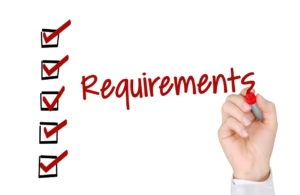In my 28 years in real estate, I’ve seen everything from minor disclosure disputes to full-scale professional negligence claims. A pattern I see again and again: well-meaning agents who make critical errors that later become central to a lawsuit.
The five behaviors below represent some of the most frequent root causes of liability. They’re worth examining not just to understand how agents err—but how these missteps can become pivotal in depositions, complaints, and trial testimony.
1. Skipping Required Disclosures at the Outset
In many states, agency disclosure is required at the first substantive interaction between a real estate licensee and a prospective client. Yet in practice, agents frequently delay these formalities, especially when rushing to capitalize on a “hot lead.”
This failure to disclose agency relationships properly can later be framed as a pressure tactic, a breach of duty, or even a misrepresentation—especially if the transaction goes awry.
Legal Risk: Courts may view the lack of early disclosure as a failure of informed consent, giving rise to claims of undue influence or fiduciary breach.
2. Proceeding Faster Than the Client Can Reasonably Follow
Agents are fluent in contracts, deadlines, and market pressure. Their clients are not. A common issue in litigation is that the client did not fully understand what they were agreeing to—and the agent either failed to explain it or moved too quickly to ensure comprehension.
Whether it’s purchase terms, inspection waivers, or dual agency arrangements, misunderstandings can be grounds for later claims of negligence or failure to advise.
Legal Risk: A rushed or incomplete explanation of terms often underpins a client’s claim that they were misled or inadequately represented.
3. Providing Inaccurate Information Instead of Deferring to Experts
Agents are routinely asked about zoning, repairs, legal boundaries, or school districts. In an effort to be helpful, some offer answers that go beyond their scope of expertise—and beyond what they’re licensed to discuss.
While intentions may be good, incorrect or speculative answers can result in measurable harm to the client.
Legal Risk: Misstatements—even casual ones—can be used to establish misrepresentation, breach of duty, or reliance damages in court.
4. Operating Outside the Scope of Their Role
Agents often develop surface-level knowledge in adjacent professions: home inspection, roofing, legal forms, appraisals, etc. Some go so far as to express opinions or offer assurances that imply professional authority they don’t possess.
For example, an agent who tells a buyer that “the roof looks fine for another 10 years” is, in essence, assuming the liability of a roofing inspector without the credentials.
Legal Risk: Statements like these can create implied warranties, or worse, serve as the basis for a negligence claim if the advice is relied upon and proves inaccurate.
5. Poor Communication and Lack of Documented Contact
A significant percentage of agent-related complaints stem from one core issue: the client felt abandoned, uninformed, or disregarded.
From an evidentiary perspective, poor communication results in a lack of contemporaneous notes, emails, or logs—making it difficult to establish what was said, when, and by whom.
Legal Risk: When there’s no clear communication record, it’s the client’s word against the agent’s—an advantage that rarely favors the defense.
Conclusion
In real estate litigation, it’s rarely the agent’s aim to cause harm intentionally. But failure to follow protocols, document communication, and respect the scope of their role can open the door to serious claims. As an expert witness, my role is to help the court understand what the standard of care required—and where it may have been breached.
For attorneys preparing cases involving agent liability, these five behaviors often serve as key leverage points for establishing pattern, negligence, or breach. Conversely, they also form the backbone of many defense strategies—when agents can show they acted within their authority, followed disclosure laws, and documented communication thoroughly.






